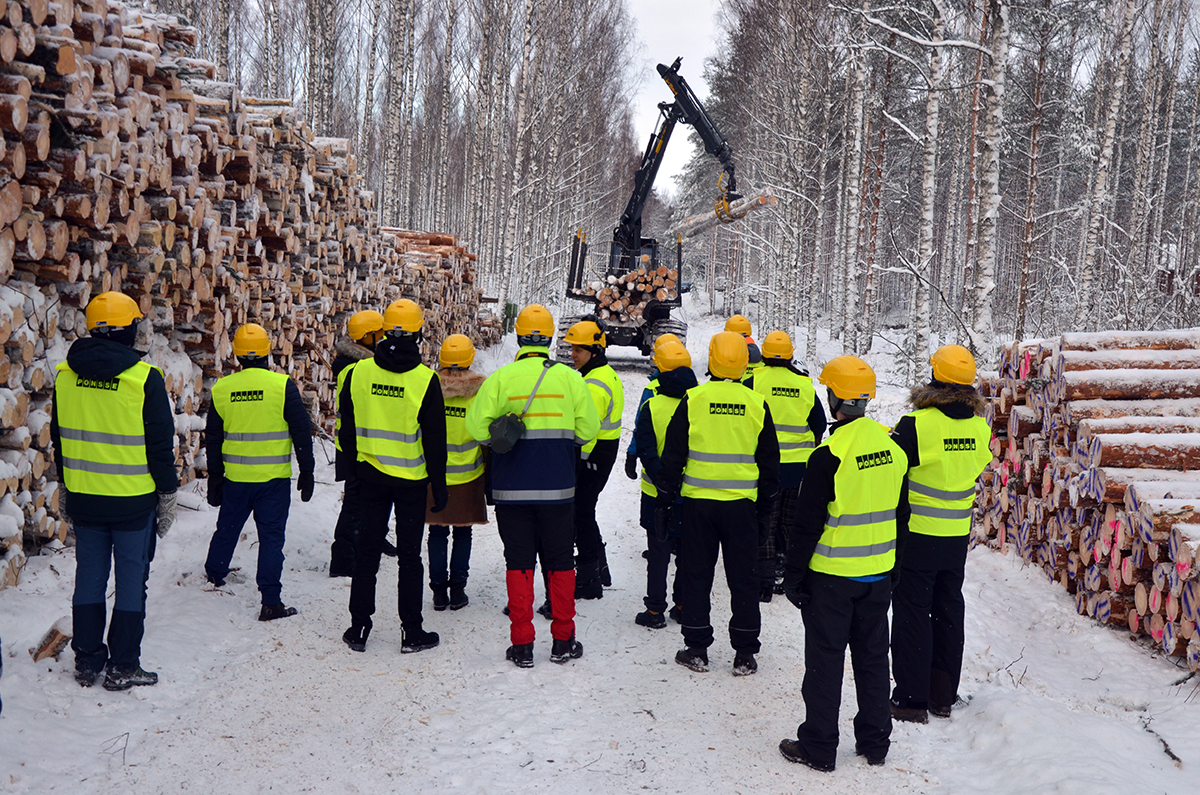Electrification is already commonplace in the car industry and in larger industrial companies. Work machines and the small and middle sized (SME) sector still have some work to do.
“We want to boost the electrification of work machines. With this development and investment project funded by the Council of Tampere Region, we are creating facilities and opportunities for the SME sector to do the same kind of electronic, digital leap that large companies have already done. Technology transfer can happen smoothly, as the project involves large companies telling their views and supporting SMEs. This is great collaboration,” says Principal Lecturer Mika Ijas from Tampere University of Applied Sciences (TAMK).
TAMK and Tampere University will develop a research, development and innovation environment for electronic and intelligent mobile work machines and commercial vehicles, as well as a testbed for demos and a 5G data transmission infrastructure.
Nationwide, a common interest crystallises under SIX initiative
Professor Matti Vilkko from Tampere University is pleased to see that Pirkanmaa area’s mobile work machine manufacturers, such as Sandvik, Ponsse, Cargotec, Kalmar, Valtra, Acgo Group and Valmet Automotive, are involved in the development.
“The collaboration has expanded into a nationwide Sustainable Industry X (SIX) initiative. At SIX, research is done by a big group. Finland has a good infrastructure that is open to researchers, but companies can also bring their infras into the same context. eSmart Machines project is one of these collaborative efforts”, he says.
Electricity instead of diesel
Vilkko gives several examples that electrification and automation can bring unbeatable advantages over fossil fuels.
“In ports, moving containers are an essential link in the global logistics chain. It should be environmentally friendly. Container trucks that once operated on diesel are now being sought to be electrified. The same happens on the forest industry. Oats used to be hauled into the forests for horses, now diesel is exported there by tank cars. That shift happened quickly”, he says.
Electrification of machinery also brings benefits to mining industry.
“In mines, diesel-powered machines eat oxygen and produce toxic gases. Automation and digitalisation of machinery, used in the depths of mines and on the ground, also makes the work safer.”
Vilkko emphasizes that it is not yet known how much machinery matters or how carbon-free forestry machinery can be made. But he is convinced that companies that are able to develop the solutions will have a business advantage.
Research, applied research and corporate tests in good cooperation
A mobile work machine test platform, powered by Avant Tecno’s electric loader, will be built in TAMK for applied research purposes. TAMK’s electric lab will then have more battery capacity so that battery usage can be studied more closely.
“We will give demos for companies on this and help them to move forward with electrification,” Ijas describes.
Vilkko says that the project focus of Tampere University is the construction and research of the data transfer infrastructure. The project involves students’ preparing their master’s thesis and doctoral thesis. University’s equipment can be complemented with the project investment money.
“Test areas and more or less electrified test machines already exist. We will build a 5G data network suitable for communicating industrial processes and machines in connection with existing labs in order to transfer information. Heavy computing is needed to be able to transfer data first from the work machine to the computing centre and then back to the work machine. We will demonstrate this to the companies. When experiments are conducted, companies have as good access to tests and results as possible. Tampere University will then accordingly process the data. This is good cooperation,” Vilkko says with satisfaction.
Project work has already started with investments. The introduction of new equipment and concrete cooperation with companies will begin this fall and continue into next spring. Demos will be presented in seminars and events for SMEs in spring 2023.
There are also some threats to the implementation in terms of global availability of device components.
“In the past, delivery schedules could be trusted. Hopefully we will have time to do the demos during the project, despite all the changes in the world situation,” says Vilkko.
“Close cooperation feeds itself as companies and educational organizations support each other”
The geopolitically important Tampere region has expertise in heavy industry, and the region is an important part of Finnish industrial history. Vilkko recalls long, shared traditions of universities and companies in the area.
“Tampere University of Technology has been operating here since the 1960s and it has offered enough talents for companies. Since then, the cooperation between Tampere University and companies has been close, it was previously regulated by law. Tampere Technical Society (TTS), which also promotes cooperation, is already 125 years old.
Ijas shares the same opinion.
“Close cooperation feeds itself when companies and educational organisations support each other. Higher education institutions are training more talents that are desperately needed in companies.
Vilkko reminds that, for the moment, companies find it difficult to recruit suitable employees.
“For us it is great to show students all kinds of interesting things that we are doing in universities. This would increase their interest in applying to study in Tampere. It requires us to get the message out to the youth that there is exciting future stuff being done here, and with genuine impact.”
More information:
Mika Ijas
Principal Lecturer
Industrial Engineering
Tampere University of Applied Sciences
mika.ijas@tuni.fi, +358504471189
Matti Vilkko
Professor | Head of Unit
Faculty of Engineering and Natural Sciences | Automation Technology and Mechanical Engineering | Automation Technology
Tampere University
matti.vilkko@tuni.fi, +358408332830
Text: Hanna Ylli
Photo: Matti Vilkko



